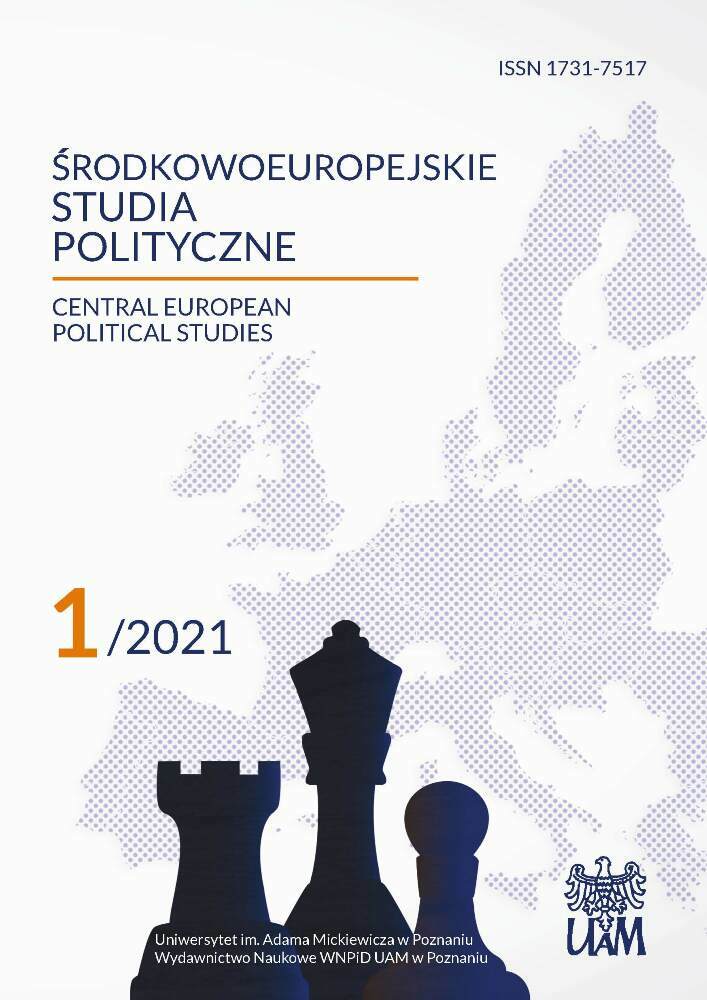Abstrakt
Badana jest skuteczność działań UE w zakresie jakości demokracji w państwach członkowskich. Na przykładzie Estonii, Łotwy i Litwy oceniano skuteczność unijnych projektów dotyczących kontynuacji transformacji liberalno-demokratycznej w państwach członkowskich z przeszłością posttotalitarną, w których utrzymuje się ryzyko regresu demokracji. Obecne cele UE scharakteryzowano jako niedostatecznie ukierunkowane na odpowiednie zapobieganie i przeciwdziałanie spadkowi jakości demokracji, zakorzenienie wartości demokracji liberalnej. Konieczność zintensyfikowania działań UE w kierunku monitorowania przestrzegania standardów demokratycznych tłumaczy się stagnacją/regresją jakości demokracji w krajach ostatnich rozszerzeń UE, w tym w państwach bałtyckich. Działania instytucji UE wobec państw członkowskich, w których demokracja znajduje się w stagnacji/regresie, zostały ocenione jako niezgodne z możliwymi konsekwencjami tego destrukcyjnego procesu. Podkreśla się brak zainteresowania UE umacnianiem wartości, na których opiera się UE, co jest postrzegane jako główna przyczyna obecnego pogorszenia się jakości demokracji. Podkreślono potrzebę skonstruowania nowego formatu demokracji europejskiej, nowych mechanizmów gwarantujących jej jakość.
Bibliografia
Anti-money laundering and counter-terrorist financing measures. Lithuania. Fifth Round Mutual Evaluation Report (2018), MONEYVAL Secretariat, Directorate General of Human Rights and Rule of Law, Council of Europe, Strasbourg.
Council of the EU (2017), The Rome Declaration, https://www.consilium.europa.eu/en/press/press-releases/2017/03/25/rome-declaration/pdf, 21.08.2020.
Council of the EU (2019), The Sibiu Declaration, https://www.consilium.europa.eu/en/press/press-releases/2019/05/09/the-sibiu-declaration/#, 26.09.2020.
European Commission (2019a), Growing together: EU support to Estonia that joined in 2004, https://ec.europa.eu/regional_policy/sources/docgener/factsheet/eu10_2004/factsheet_growing-together_et_en.pdf, 3.09.2020.
European Commission (2019b), Growing together: EU support to Latvia that joined in 2004, https://ec.europa.eu/regional_policy/en/information/publications/factsheets/2019/growing-together-eu-support-to-latvia-that-joined-in-2004, 9.08.2020.
European Commission (2019c), Growing together: EU support to Lithuania that joined in 2004, https://ec.europa.eu/regional_policy/en/information/publications/factsheets/2019/growing-together-eu-support-to-lithuania-that-joined-in-2004, 30.09.2020.
European Commission (2019d), Opening Statement in the European Parliament’s Plenary Session, https://ec.europa.eu/commission/presscorner/detail/en/speech_19_4230, 17.09.2020.
Fotopoulos S. (2019), What sort of changes did the Spitzenkandidat process bring to the quality of the EU’s democracy?, “European Viewˮ, vol. 18, no. 2.
Godfrey K., Youngs R. (2019), Toward a New EU Democracy Strategy, Carnegie Endowment for International Peace, Washington.
Müller J.-W. (2015), Should the EU Protect Democracy and the Rule of Law inside Member States?, “European Law Journalˮ, vol. 21, no. 2.
Naujokaitytė G. (2020), Baltic states want more out of Horizon Europe, https://sciencebusiness.net/framework-programmes/news/baltic-states-want-more-out-horizon-europe, 22.10.2020.
Raine S. (2019), Europe’s Strategic Future: From Crisis to Coherence?, Routledge for the International Institute for Strategic Studies, Abingdon, UK.
Scheppele K. L., Kochenov D., Grabowska-Moroz B. (2020), EU Values Are Law, after All: Enforcing EU Values through Systemic Infringement B. Actions by the European Commission and the Member States of the European Union, https://academic.oup.com/yel/advance-article/doi/10.1093/yel/yeaa012/6064852?searchresult=1, 05.01.2021.
Licencja
Prawa autorskie (c) 2021 Nataliia Khoma, Ihor Vdovychyn

Utwór dostępny jest na licencji Creative Commons Uznanie autorstwa 4.0 Międzynarodowe.

